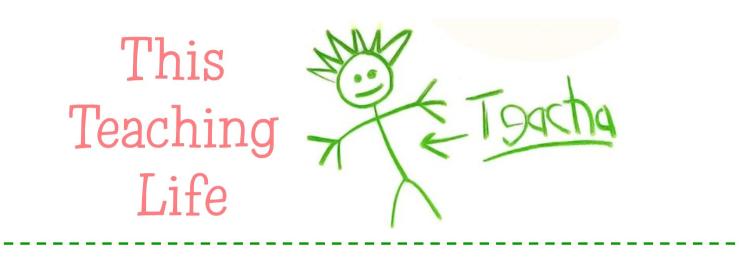A child's entry into school is an important transition that I play a significant role in as a Kindergarten teacher. Children enter Kindergarten with a wide variety of prior experiences, especially experiences in literacy.
This week I read an article from the Journal of Early Childhood Literacy entitled, Engagement with print: Low-income families and Head Start children which examined the types of print literacy activities low-income parents reported engaging in with their four-year old children who are involved in Head Start, a pre-school program for children from low-income families living in the USA. Head Start is a federally funded, comprehensive child development program that originated under the Economic Opportunity Act of 1964 to benefit low-income children.
It is known that children who enter school more prepared in terms of having knowledge about literacy, have an advantage over children who do not have these experiences. Ideally, Head Start helps prepare children who would not have exposure to literacy before beginning school on their own the opportunity to be exposed to literacy.
The article suggested the important role of pre-school and particular parent-child activities in developing children's early print concepts. While the results of home-school connections appear encouraging, achievement gaps still persist, especially with low-income and minority children. This lead me to question, what are we (educators) doing to support these families and the young children entering into school?
According to the article, The relationship between homes and schools is a complex one. Using and valuing what families already know in order to teach them what they do not know is a subtle process that can easily go wrong. Collaboration and negotiation are important for achieving a relationship between homes and schools that can support children's early literacy development however, it does not address how to go about creating this relationship with families and thus leaves me still wondering, how can you reach congruency between home and school? How can we support parents' literacy contracts with schools' literacy contracts?
Sunday, March 22, 2009
How Can You Reach Congruency?
Posted by
Blair
at
7:20 PM
3
comments
![]()
Sunday, March 1, 2009
To Read or Not To Read
My fondest memory of reading is being young enough to sit on my mother's lap before bed on the rocking chair in my bedroom. The lights were dim, I had just had my bath, and I sat snuggled close to my mom in pajamas with my favorite books in hand for her to read. I even remember the titles of some of my most loved books: The Grown-Up Day, Wacky Wednesday, Bernstein Bears and the Spooky Old Tree, Are You My Mother?, etc.
My mother's bedtime read alouds helped build my current love for reading but I think teachers are equally important in developing a child's passion for reading, even at a young age.
Teaching reading strategies to decode words is crucial to become an independent reader, however teaching a student how to think, communicate, and respond to questions when reading is just as valuable. These skills are taught when reading sophisticated stories beyond childrens' independent reading levels rather than reading easy, predictable, concept books. When participating in interactive/dialogic read alouds vs. reading "Big Books" to model reading strategies, children begin to associate reading as an interactive/social experience and ultimately lays a foundation for a child's love of reading.
I also completely believe that children should have choice in what they are reading whether it is their favorite picture book or a non-fiction book about about dogs, they should have an opportunity to read from text that interests them.
I often think about my reading habits as an adult reader when teaching my Kindergarten students. Ironically, despite our age difference, we have very similar reading habits: independent reading time, partner reading time, book clubs, self-selected text, and time to talk, talk, talk! Children need these same experiences in addition to direct reading instruction to develop into independent readers who can decode, comprehend, think, respond, and stay motivated to read.
If a love for reading is not established early, many of our preschool/Kindergarten children will be one of the many adults who you so frequently hear say, "I hate to read." Am I doing all I can in my classroom to avoid my students one day saying to themselves, "to read or not to read, that is the question?" 
Posted by
Blair
at
4:45 PM
4
comments
![]()


